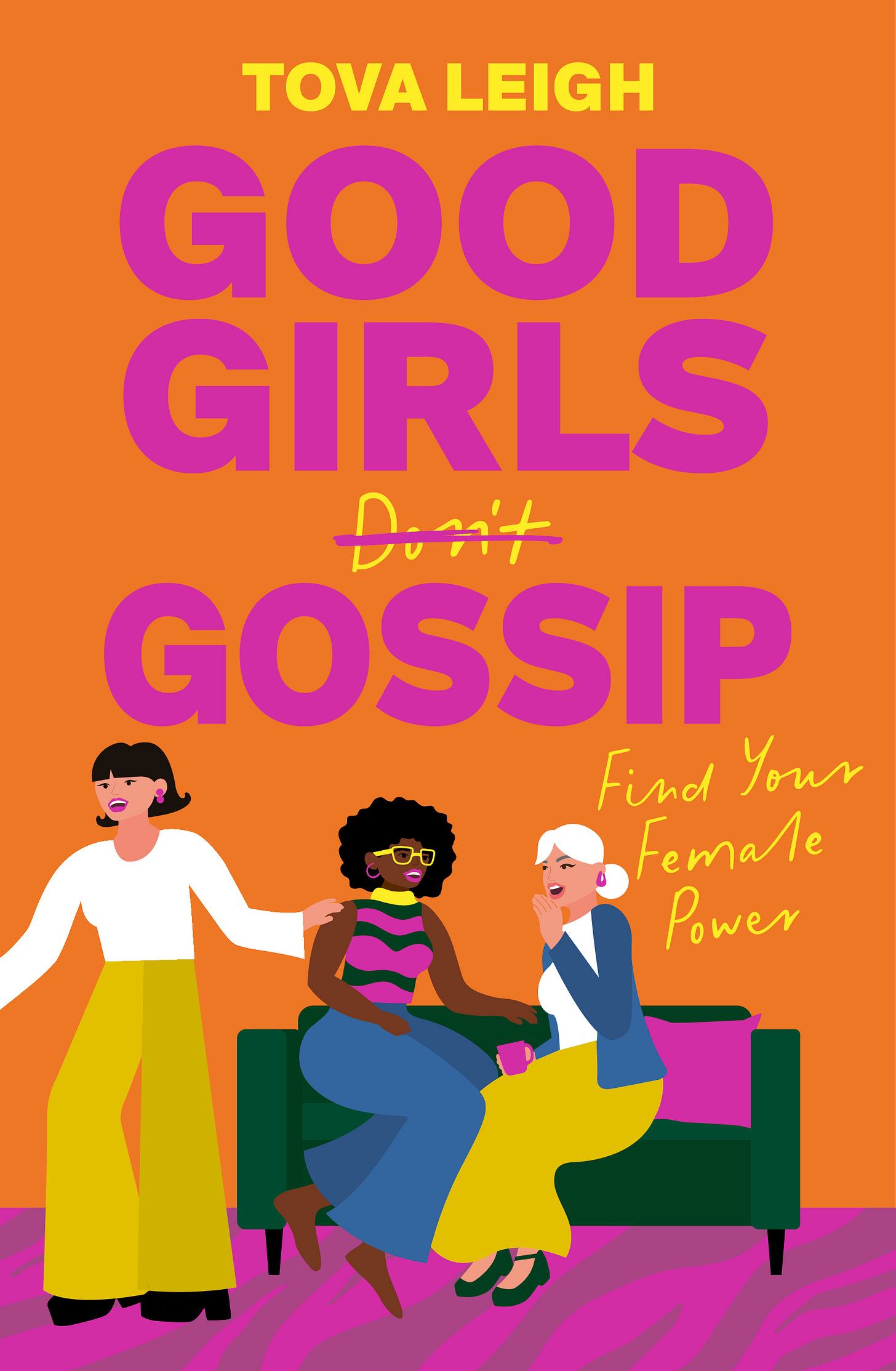Good Girls Gossip: the word’s feminist history shows people will do anything to stop women talking
I was curious - then furious - to learn how far the meaning has drifted from its roots.
By Tova Leigh, author of Good Girls Gossip
When I think back to my childhood, one of my most vivid memories is of my mother at the kitchen table.
Surrounded by her closest friends, they'd cook, laugh, complain, and - yes - gossip. There was always a cloud of cigarette smoke hanging in the air, the clatter of pots and pans in the background, and the low hum of women speaking freely, without apology, like a pack of wild wolves howling with laughter while sipping Diet Coke. I didn’t understand it then, but those moments were sacred. They were lifelines.
My mother, who often seemed tired and burdened in other parts of her life, came alive in those hours. There was joy in the air, even when the conversations were raw or messy and sometimes filled with frustration.
That memory resurfaced for me years later as I started researching the word “gossip” while writing my book Good Girls Gossip. I was curious - and then furious - to learn how far the word had drifted from its roots.
Today, gossip is a word that often conjures images of whispering behind someone’s back, cattiness, or mean girl culture. It’s a word thrown at women as an insult, used to shame and silence. But that’s not where it started.
What I discovered is that the word gossip comes from the Old English godsibb, which meant a person related to you in God - a close companion, a godparent, a trusted friend. It described the women who would gather around a mother during childbirth, offering support, wisdom, and strength. Basically, gossip was community. Female community.
Over time, especially as patriarchal systems tightened their grip on society, the word shifted. Women’s circles became suspect. Female friendships - those intimate spaces where stories, knowledge, and truths were exchanged - were dismissed as idle chatter, or worse, dangerous. Why? Because connection is power. And historically, women’s power has so often been found not in hierarchy, but in network - in the togetherness and in the bonds we build with one another.
Related articles
In Good Girls Gossip, I wanted to reclaim this word and remind us of what it once meant - and what it could mean again.
When women gather - whether it’s over wine, WhatsApp, or voice notes sent at midnight - there is an exchange happening that’s deeper than just news. We are metabolising our lives together. Witnessing each other. We’re finding clarity, humour, perspective, and, most of all, solidarity. Sisterhood.
We gossip about our fears. About the way our bodies are changing. About motherhood, aging, ambition, and the systems that press down on us. We tell the truth in a world that often doesn’t want to hear it. And all of that is female empowerment in the best way possible.
The kitchen table of my childhood is still with me. These days, it might look more like a group chat or a retreat circle, but the essence is the same. Connection. Storytelling. Joy. Laughter. Tears. Authenticity. The whole shebang.
So let them call us gossipers. I say: Good. Let’s gossip more. Let’s claim it, own it, and make it powerful again. Because when women talk - really talk - revolutions begin, one whispered truth at a time.
Tova Leigh is a writer, performer and creator based in the UK. Good Girls Gossip is published by Watkins Media Limited and available here.






